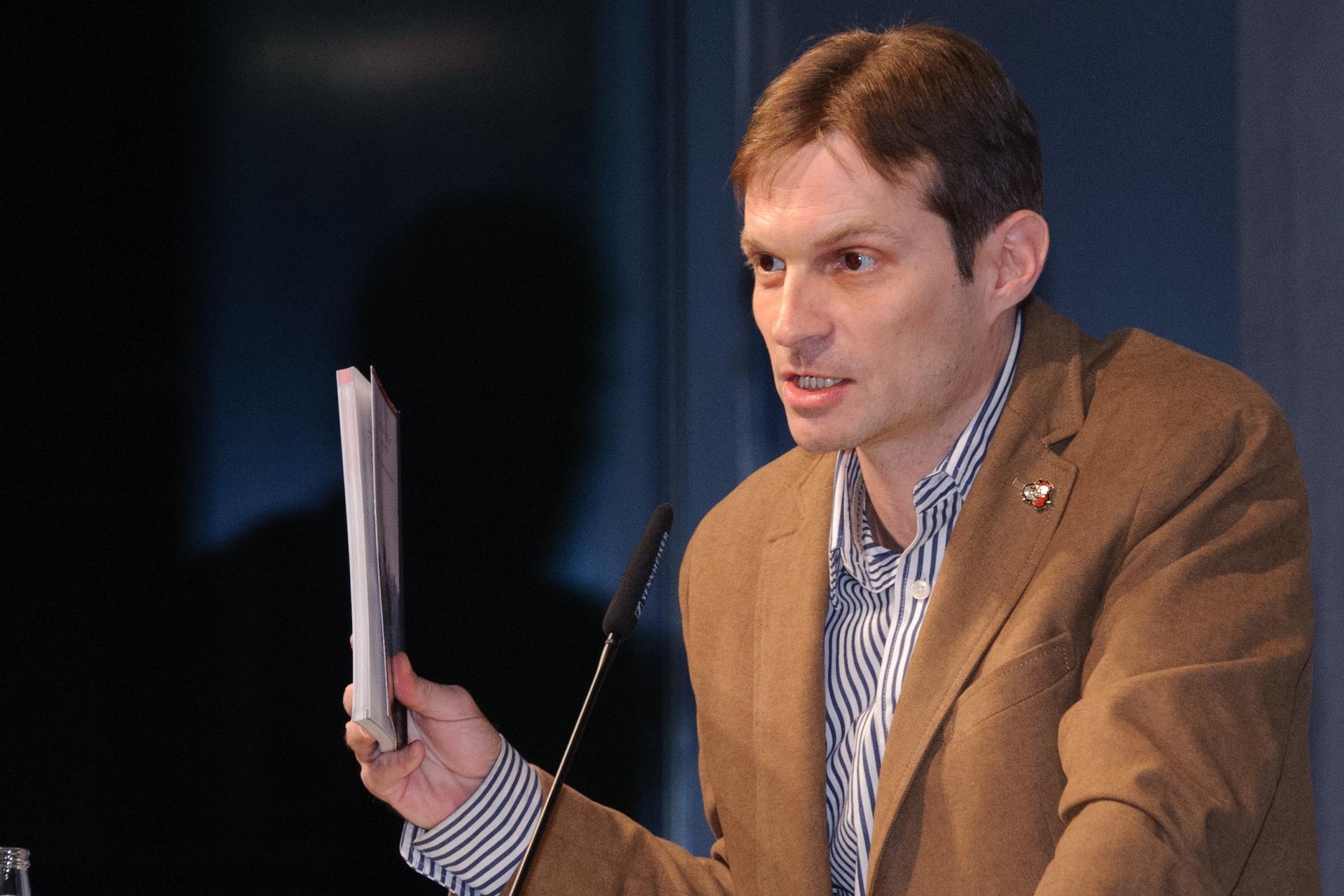Do try this at home: revolution for dummies
Srdja Popovic: “You identify a regime’s most important pillars and pull some of them to your side.”
BELGRADE, Serbia — Srdja Popovic rarely stops talking or gesticulating. "If you want it in one simple sentence,” he says, smiling self-confidently, “what we do is try to make nonviolent struggle user-friendly.”
Tall, lean and square jawed, Popovic is director of the Centre for Applied NonViolent Strategies, or CANVAS, based in a nondescript little office appropriately located on Gandijeva (Ghandi) Street in New Belgrade, across the Sava River from the capital’s quaint old town.
With a mission to organize political and social movements, the organization has been credited with — or accused of — involvement in many of the popular revolts that have been rocking the Arab world and beyond during the last several years.
Tunis, Egypt, Syria — but also the Maldives, Georgia and Ukraine: Pick a revolution and CANVAS has been there. If there’s a rock star of the international nonviolent protest movement, it’s Popovic.
Foreign Policy named the 40-year-old Serbian one of its top global thinkers in 2011. Wired UK has called him one of the 50 people who will change the world. He’s a member of the Forum of Young Global Leaders at the World Economic Forum and, of course, a TED speaker.
But could the Arab Spring and other uprisings really have much to do with a small Belgrade office?
That wasn’t how Popovic pictured it back in 1998, when he joined his friend Slobodan Djinovic and other young Serbians to form a group called Otpor! (resistance). Using street theatre, rock music and humorous slogans, they helped mobilize large numbers of people to take to the streets in 2000 and force then-President Slobodan Milosevic to resign.
After being featured in a 2002 documentary, Popovic began receiving invitations from groups abroad interested in learning its tactics, starting in Belarus and Zimbabwe.
Elected to parliament in 2000, he quit his job and took to the road along with Djinovic, a businessman who launched Serbia’s main Wi-Fi telecom provider.
They worked with Georgians and Ukrainians during their respective Rose and Orange revolutions before founding CANVAS in 2004. They also published a small book called Non-violent struggle: 50 Crucial Points. “We call it 'Non-violent struggle for dummies,'" Popovic says, dressed in jeans and sneakers.
CANVAS has since worked in Venezuela, Burma, Slovenia and the Maldives, always at the invitation of local groups, Popovic says. More than 3,000 people from 46 countries, including Syria, Egypt, Tunis and North Korea, have attended their workshops.
"They all come saying it will never work in Spain, or Turkey, Syria or wherever because the regime is too oppressive or people are too busy shopping,” he says, placing a television remote control on top of two glasses.
"But if you want social change, it's not very different from removing this,” he says of one of the glasses. "You identify the most important pillars of a regime and pull some of them to your side,” he concludes, toppling the remote by taking the glass.
CANVAS’s wide reach together with the revelation that its predecessor Otpor! received money from the US government has fuelled rumors that it’s on the CIA’s payroll.
Popovic laughs them off.
"The narrative goes like this: the CIA or George Soros give the Serbs millions of dollars to take their fancy laptops to country X and spread revolution among normal people who aren’t complaining about their happy lives,” he says. “Boom! Next thing you have millions of people in the streets.”
Real change, he says, requires four variables: numbers, creativity, enthusiasm and skills. “The only one you can import or learn from someone else is skills, which is our mission.”
Nonviolence is crucial. “You make it the religion or ideology, you preach it: We’re cool because we’re nonviolent.” Trainees are taught to recognize potentially violent situations.
“Big demonstrations, contact with the police, destroying property, large masses in one place,” he says. “You train people to diminish the possibility of violence.”
More from GlobalPost: Is Kyrgyzstan still Central Asia’s poster child for democracy?
Is violence ever justified, even against a dictator killing his own people?
No, Popovic says — not only morally, but also for pragmatic reasons. If your adversary is Mike Tyson, he explains, “the last thing you want is to meet him in the ring.”
CANVAS, which employs five full-time staff members and 12 trainers who work as contractors, is funded by Djinovic's company and private donations.
The group would never accept money from any government, Popovic says.
"In unhappy countries, the people are afraid of the government,” he concludes. “In happy ones, the government is afraid of the people.”
Our coverage reaches millions each week, but only a small fraction of listeners contribute to sustain our program. We still need 224 more people to donate $100 or $10/monthly to unlock our $67,000 match. Will you help us get there today?
